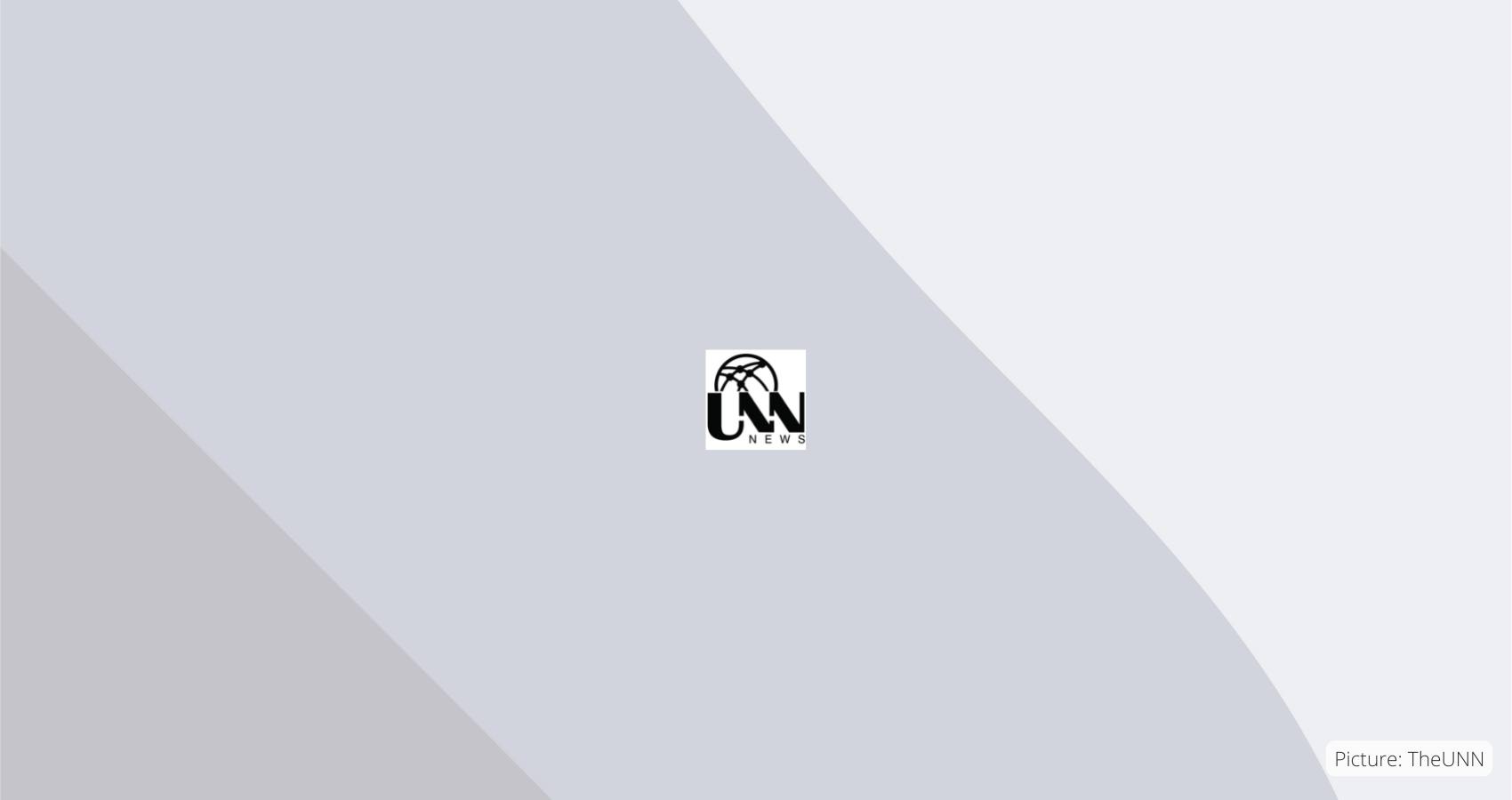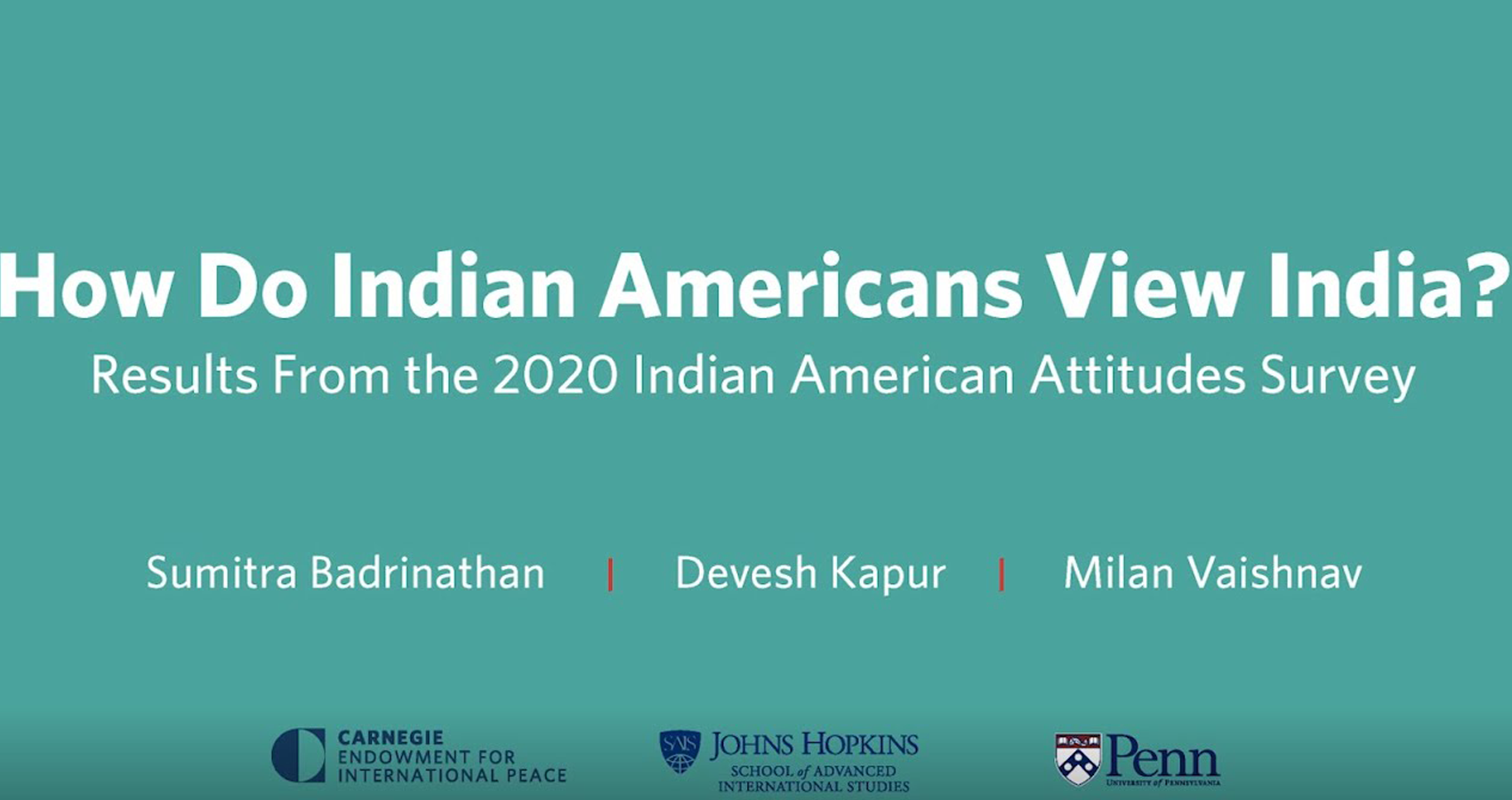U.S. President Joe Biden remarked in a March 2021 phone call with Swati Mohan, an Indian-origin scientist charged with overseeing the highly anticipated landing of the Perseverance Mars rover for the National Aeronautics and Space Administration: “It’s amazing. Indian—of descent—Americans are taking over the country: you, my vice president [Kamala Harris, whose mother was born in India], my speechwriter, Vinay [Indian American Vinay Reddy]. . . . You guys are incredible.”1
While some in the media interpreted Biden’s off-the-cuff remark as an unfortunate gaffe, others viewed it as affirmation of the growing influence of the Indian American diaspora. In the same exchange, Biden later added: “One of the reasons why we’re such an incredible country is we’re such a diverse country. We bring the best out of every single solitary culture in the world here in the United States of America, and we give people an opportunity to let their dreams run forward.”
Indian Americans are the second-largest immigrant group in the United States. As the number of Indian-origin residents in the United States has swelled north of 4 million, the community’s diversity too has grown.
Today, Indian Americans are a mosaic of recent arrivals and long-term residents. While the majority are immigrants, a rising share is born and raised in the United States. Many Indian immigrants might have brought with them identities rooted in their ancestral homeland, while others have eschewed them in favor of a nonhyphenated “American” identity. And despite the overall professional, educational, and financial success many Indian Americans enjoy, this has not inoculated them from the forces of discrimination, polarization, and contestation over questions of belonging and identity.
There is surprisingly little systematic data about the everyday social realities that Indian Americans experience. How do Indian Americans perceive their own ethnic identity? How do they respond to the dual impulses of assimilation and integration? And how might their self-conception influence the composition of their social networks?
These are not merely academic questions. As the profile of the Indian American community has grown, so too has its economic, political, and social influence. But how Indian Americans choose to deploy this influence remains an open question. To what extent do people of Indian origin encounter discriminatory behavior—on what grounds and by whom? As the United States witnesses a resurgence of violence and hate speech targeting Asian Americans, how might it affect Americans of Indian origin?
This study draws on a new source of empirical data to answer these and other questions. Its findings are based on a nationally representative online survey of 1,200 Indian American residents in the United States—the 2020 Indian American Attitudes Survey (IAAS)—conducted between September 1 and September 20, 2020, in partnership with the research and analytics firm YouGov. The survey, drawing on both citizens and non-citizens in the United States, was conducted online using YouGov’s proprietary panel of 1.8 million Americans and has an overall margin of error of +/- 2.8 percent.
This study is the third in a series on the social, political, and foreign policy attitudes of Indian Americans. The major findings are briefly summarized below.
- Indian Americans exhibit very high rates of marriage within their community. While eight out of ten respondents have a spouse or partner of Indian origin, U.S.-born Indian Americans are four times more likely to have a spouse or partner who is of Indian origin but was born in the United States.
- Religion plays a central role in the lives of Indian Americans but religious practice varies. While nearly three-quarters of Indian Americans state that religion plays an important role in their lives, religious practice is less pronounced. Forty percent of respondents pray at least once a day and 27 percent attend religious services at least once a week.
- Roughly half of all Hindu Indian Americans identify with a caste group. Foreign-born respondents are significantly more likely than U.S.-born respondents to espouse a caste identity. The overwhelming majority of Hindus with a caste identity—more than eight in ten—self-identify as belonging to the category of General or upper caste.
- “Indian American” itself is a contested identity. While Indian American is a commonly used shorthand to describe people of Indian origin, it is not universally embraced. Only four in ten respondents believe that “Indian American” is the term that best captures their background.
- Civic and political engagement varies considerably by one’s citizenship status. Across nearly all metrics of civic and political participation, U.S.-born citizens report the highest levels of engagement, followed by foreign-born U.S. citizens, with non-citizens trailing behind.
- Indian Americans’ social communities are heavily populated by other people of Indian origin. Indian Americans—especially members of the first generation—tend to socialize with other Indian Americans. Internally, the social networks of Indian Americans are more homogenous in terms of religion than either Indian region (state) of origin or caste.
- Polarization among Indian Americans reflects broader trends in American society. While religious polarization is less pronounced at an individual level, partisan polarization—linked to political preferences both in India and the United States—is rife. However, this polarization is asymmetric: Democrats are much less comfortable having close friends who are Republicans than the converse. The same is true of Congress Party supporters vis-à-vis supporters of the Bharatiya Janata Party (BJP).
- Indian Americans regularly encounter discrimination. One in two Indian Americans reports being discriminated against in the past one year, with discrimination based on skin color identified as the most common form of bias. Somewhat surprisingly, Indian Americans born in the United States are much more likely to report being victims of discrimination than their foreign-born counterparts.
- To some extent, divisions in India are being reproduced within the Indian American community. While only a minority of respondents are concerned about the importation of political divisions from India to the United States, those who are identify religion, political leadership, and political parties in India as the most common factors. (Courtesy: Carnegie Endowment for International Peace)



